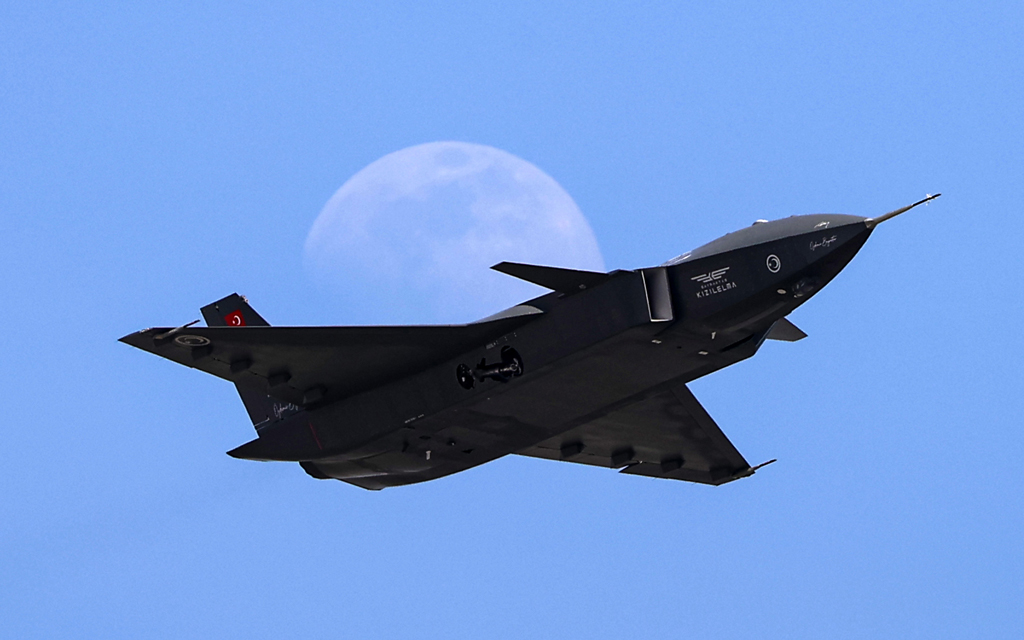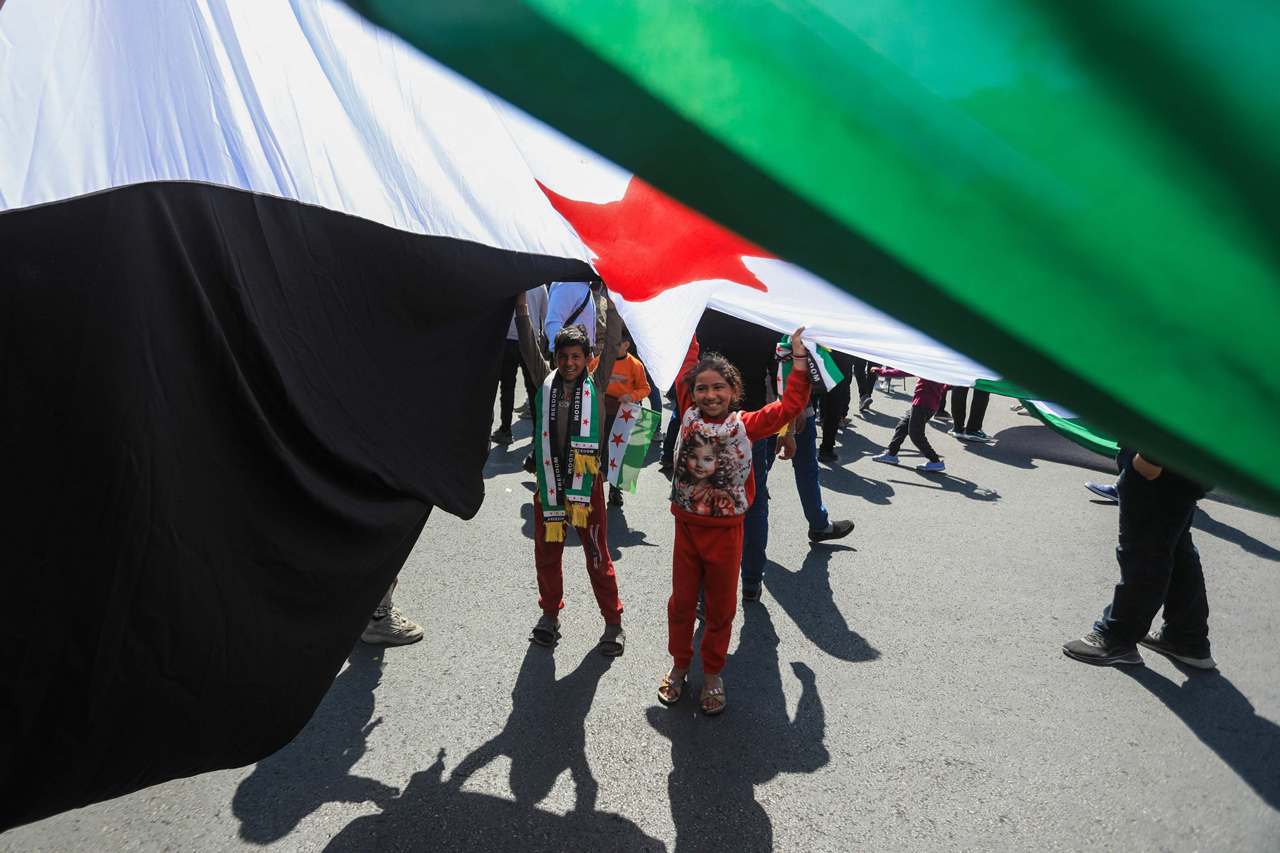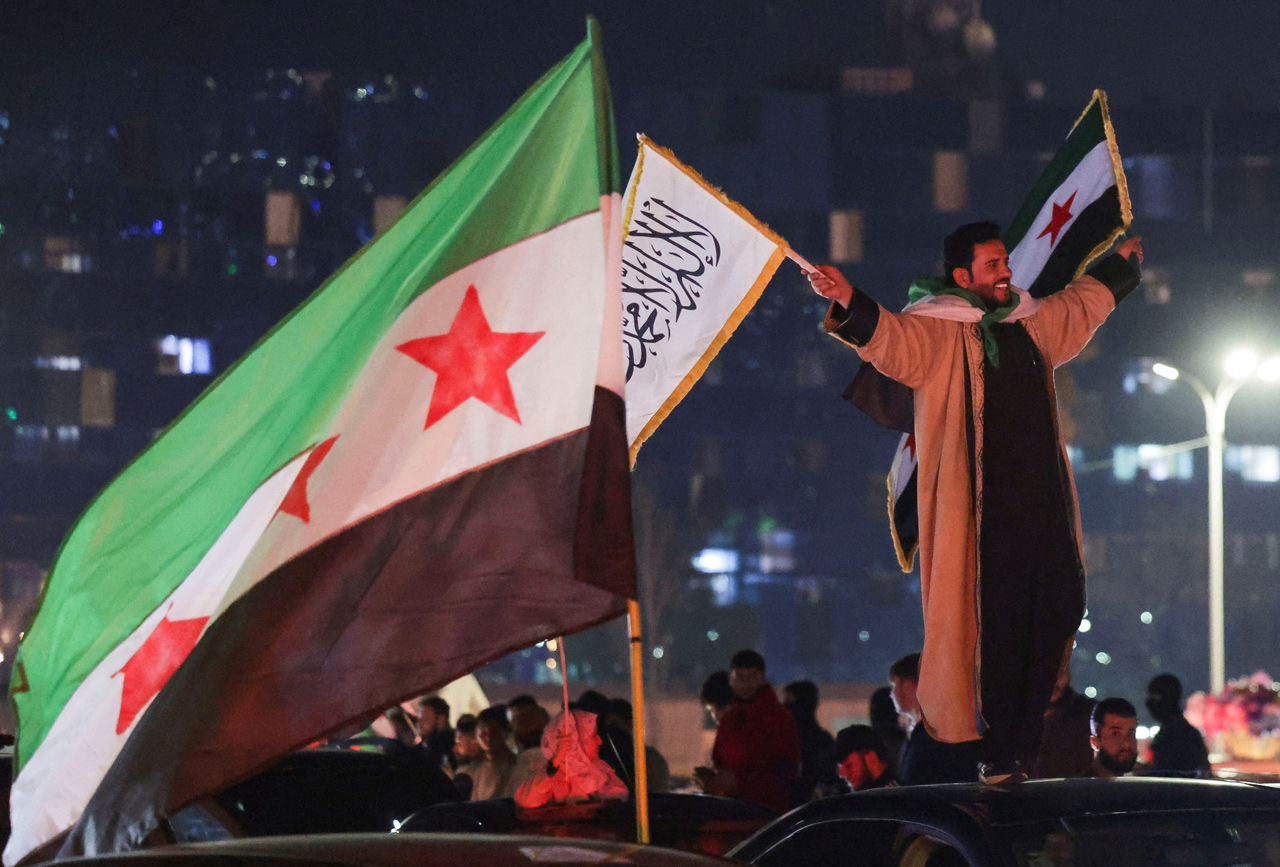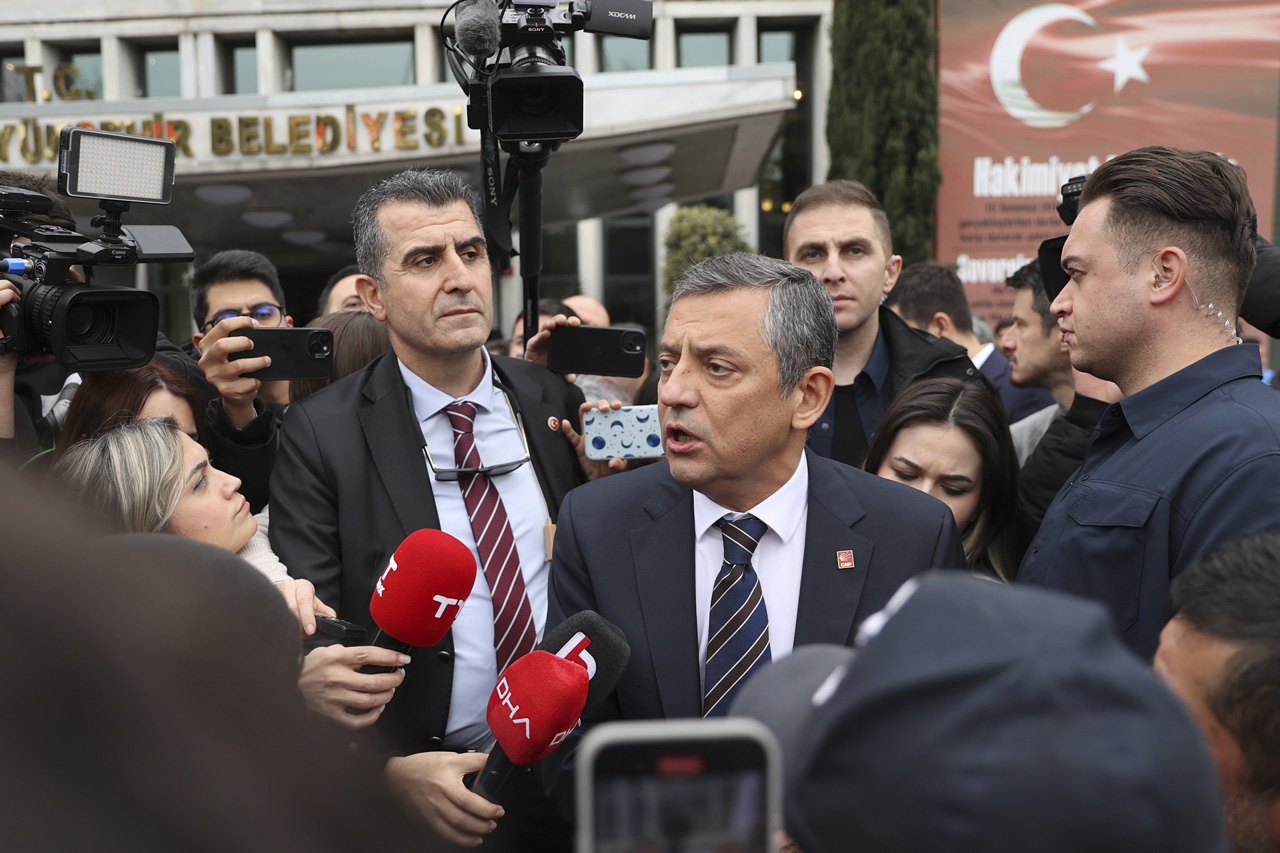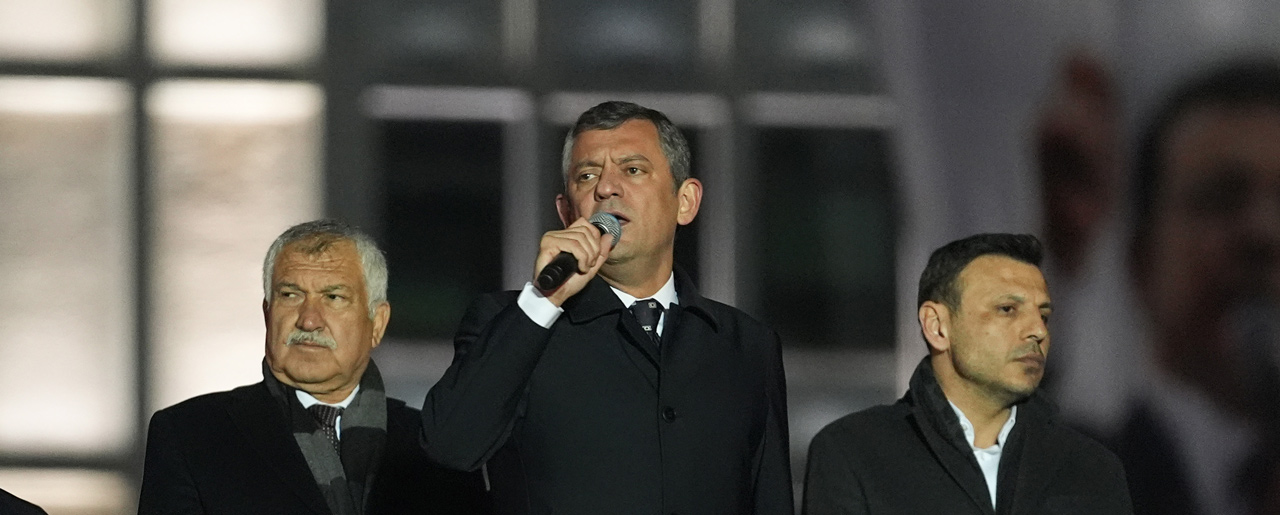Türkiye enters 2025 in an increasingly competitive and uncertain global political environment. The international system is characterized by intensifying great power rivalry, particularly between the U.S. and China, a protracted war in Ukraine and deepening instability in the Middle East. Against this backdrop, Türkiye is pursuing a pragmatic and interest-based foreign policy prioritizing security, economic resilience and strategic autonomy.
The return of Donald Trump to the U.S. presidency brings more unpredictability as his administration’s transactional approach to diplomacy complicates traditional multilateral frameworks. Trump’s "expansionist" geopolitical rhetoric unsettles his neighbors and significantly disturbs Europe. The American strategic community, which accused Russia of expansionism, has now drifted to the point where they are debating why Canada should join the U.S.
While some U.S. allies have been able to adapt to a more pragmatic relationship with Washington, Türkiye is focused on preserving its strategic autonomy by maintaining flexible alignment with both Western and non-Western actors. More importantly, Türkiye is trying to implement a foreign policy strategy based on strong partnerships with its near and distant neighbors in a complex regional environment that a post-Assad Syria and a fragile cease-fire in Gaza could complicate.
The most important dynamic currently shaping Türkiye’s geopolitical environment is a more pronounced global power competition. In this sense, the strategic rivalry between the U.S. and China competition affects global trade dynamics, military alliances and technology supply chains, forcing medium-sized powers to position themselves carefully in this environment. Türkiye faces two strategic options in this environment: To selectively accommodate U.S. priorities in NATO and defense cooperation or to adopt a working coalition approach that prioritizes economic and security diversification with non-Western actors. The latter would involve improving relations with China, Russia and regional players while balancing engagements with the West to avoid diplomatic and economic isolation. As global power struggles intensify, Türkiye must act carefully in this environment to safeguard its national interests and geopolitical influence.
Dynamics in the Middle East
Regional uncertainties in the Middle East continue to pose complex challenges for Türkiye. The region remains a focal point of geopolitical competition, with key developments such as the reconstruction of Syria in the post-Assad era, ongoing military tensions between Israel and Iran, and the revision of the Abraham Treaty shaping the strategic balance.
The collapse of Bashar Assad's regime in Syria brings both opportunities and challenges for Türkiye. While Ankara aims to contribute to establishing a sustainable transition structure and eliminate the PKK and its Syrian wing YPG, the weakening presence of rival regional actors such as Iran and Russia complicates Türkiye’s stabilization efforts. The future of the PKK/YPG in Syria may remain a critical point of divergence between Türkiye and the U.S.
Two potential scenarios illustrate how this issue could evolve in 2025. In the first scenario, Türkiye and the U.S. could reach a mutually acceptable compromise on the PKK/YPG. Recognizing Türkiye’s security concerns, the U.S. would limit its military and political support to the PKK/YPG, while Türkiye would refrain from large-scale military operations in northeast Syria. Instead, both countries will cooperate on a framework for stabilizing the region. In this way, while ensuring the security of the region, Türkiye could accept the YPG’s declaration of severing ties with the PKK and position the YPG as a non-military actor in Syria’s political reconstruction in the new era. Such a scenario could diversify opportunities for cooperation between Türkiye and the U.S. By leveraging Türkiye’s regional influence and U.S. intelligence capabilities, the fight against Daesh can continue uninterrupted and security risks can be minimized through the coordination of security mechanisms between the two countries.
In the second scenario, the YPG issue could escalate into an open conflict between Türkiye and U.S.-backed forces in Syria. Seeing the YPG’s growing influence as an existential threat, Türkiye could launch extensive military operations in northern Syria to dismantle the YPG’s infrastructure. The U.S., in turn, could increase its support for the YPG, leading to an escalation of tensions and triggering a proxy conflict. In such a scenario, Türkiye’s military resolve and the U.S. insistence on supporting the YPG could escalate bilateral relations. A conflictual scenario would not only severely damage bilateral relations but could also trap Syria in a competitive security environment during the transition period, reduce cooperation in other thematic areas and push Türkiye to seek alternative alliances to balance U.S. influence.
Türkiye also has to manage its role in the Israeli-Palestinian conflict. Türkiye should be expected to be an influential actor in achieving a sustainable cease-fire between Israel and Hamas and the reconstruction of Gaza. However, the continuation of Israel’s assertive military posture in Gaza and Lebanon, supported by Washington, could lead to Syria becoming a new area of competition between Türkiye and Israel. Türkiye’s policy in this context will involve diplomatic mediation and balancing Israel’s growing influence in regional affairs. Therefore, calibration of regional diplomacy in the Middle East is vitally important for Türkiye.
Another critical issue in the Middle East is Iran. Trump’s desire to contain and further weaken Iran is likely to lead to an escalation of proxy conflicts in the region. As the U.S. pressures Tehran through economic sanctions and strategic deterrence, Türkiye appears to be pursuing a careful balancing act to avoid direct involvement in a wider conflict. The possibility of further fragmentation of the region remains a significant challenge that requires Türkiye to constantly adjust its policies in response to changing security dynamics.
Türkiye's growing role
Türkiye remains a critical player within NATO, contributing to deterrence measures in response to the ongoing Russia-Ukraine conflict. However, Ankara emphasizes strategic autonomy, balancing NATO commitments with independent foreign policy preferences. Türkiye’s role within NATO in 2025 is defined by a strengthened deterrence posture in the Black Sea, increased investments in indigenous defense technologies and selective cooperation with NATO allies while maintaining an open channel with Russia.
Türkiye’s geopolitical reach extends beyond its immediate neighborhood, with Africa emerging as a strategic priority. Ankara seeks to strengthen its economic presence through trade agreements, defense partnerships and infrastructure investments. Türkiye’s growing presence in the Horn of Africa, North Africa and the Sahel reflects its broader strategy to exert influence in regions historically dominated by European and Chinese actors. However, Türkiye faces significant competition from established players such as China, France and Russia, actively expanding their influence in Africa. Türkiye's ability to overcome these challenges while protecting its economic and strategic interests in Africa will be a key test of its foreign policy coherence in 2025.
Calibrating defense industry
Türkiye’s defense strategy increasingly prioritizes domestic production of military technologies, including advanced drone capabilities, cyber warfare tools and missile defense systems. These developments contribute to Türkiye’s broader goal of reducing its dependence on Western military suppliers and strengthening its defense industry. At the same time, a strong defense industry portfolio is transforming Türkiye into a critical player with an ever-rising profile in the defense industry equation. In 2025, Türkiye’s defense industry will be the key sector in reshaping Türkiye’s regional and global postures.
In 2025, counterterrorism will remain central to Türkiye’s national security strategy. Türkiye faces constant threats from PKK/YPG elements and Daesh cells operating along its southern borders. Türkiye’s counterterrorism approach is two-pronged: Military strikes targeting PKK/YPG strongholds in Syria and Iraq and diplomatic efforts to compel Western actors, particularly the U.S., to cut support to PKK/YPG-affiliated groups. Türkiye is also leveraging regional partnerships, particularly with Gulf states, to counter terrorist financing networks and intelligence operations. While Türkiye remains committed to counterterrorism, continued instability in Syria and Iraq poses significant security risks that will require continued vigilance and strategic recalibration.
As the global landscape continues to change, Türkiye’s ability to adapt to and defend its national interests will determine its geopolitical positioning in the new year. In the face of increasing regional fragmentation, Türkiye will likely continue to fortify its foreign policy through a mix of diplomatic mediation, military deterrence and economic resilience to navigate the uncertainties of 2025.

